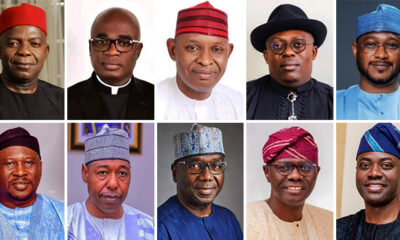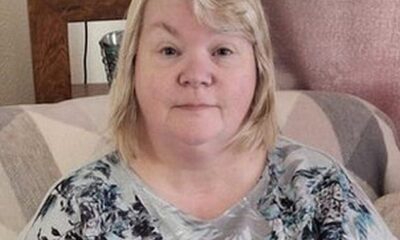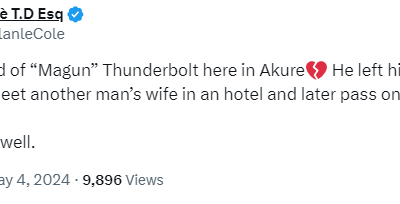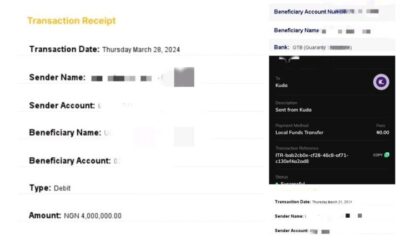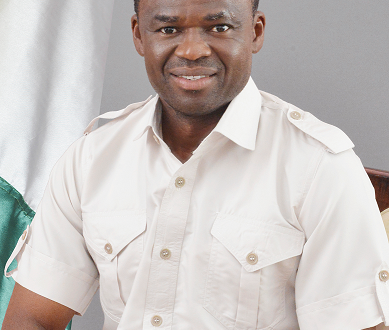News
Tips To Avoid Leaked Phone Conversation
Published
1 year agoon
By
Editor
In today’s digital age, every word spoken on a phone can be intercepted, tapped, recorded and leaked to the public.
Our smartphones store sensitive information, track location and other digital functions.
The Nigerian Constitution in Section 37 provides for the protection of the privacy of Nigerian citizens, their homes, correspondence, telephone conversations and telegraphic communications.
While the constitution does not clarify how the privacy of Nigerians should be protected, it is advisable to seek consent from all participants before recording phone calls and conversations.
In 2019, the Nigerian Communications Commission published the Lawful Interceptions of Communications Regulations, 2019, a supplement to the Nigerian Communications Act 2003.
The regulations give power to law enforcement agencies to intercept communications provided by communication licensees (communications companies). Authorised agencies are required to first obtain a warrant from a judge.
READ ALSO: Fake Audio Conversation With Oyedepo, Product Of APC’s Forgeries – Obi
Ideally, phone conversations are supposed to be private and confidential but conversations and information on phones can be misused to monitor, stalk, or control. Trust your instincts if you suspect that someone is monitoring your phone.
Politicians are some of the most high-profile targets for espionage and blackmail.
Of recent, a leaked audio generated controversy on social media. An alleged telephone conversation between Peter Obi, the presidential candidate of the Labour Party, and David Oyedepo, the founder of the Living Faith Church Worldwide, was leaked to the public.
In the alleged audio clip, Obi asked Oyedepo to help spread his message to Christians in the South-west and parts of North-central, describing the 2023 election as a “religious war”.
While the Nigerian Communications Commission (NCC) has denied allegations of hacking and tracking phone conversations, it has now become imperative for users to be conscious of their conversations.
Here are few tips on how to ensure your phone conversation does not get leaked:
1. Always be aware of strange behavior when using phones and applications as they can indicate that it has suffered some type of attack and your data may be at risk.
READ ALSO: Obi, Oyedepo’s Leaked Conversation Throws LP’s Media Team Into Confusion
2. Applications such as Whatsapp and Telegram exhibit some malfunction. For example, be aware of the following behaviors: the application asks you to re-login frequently, conversations with unknown people, messages disappear for no reason, appearing or being viewed without your knowledge.
3. Enable the two-step verification option in your applications and perhaps your mobile device.
4. Lock your cell phone screen so that it is not easy for anyone to access it.
5. Avoid keeping sensitive data on your smartphone, including personal photos, documents and other items whose loss causes major inconvenience;
6. Do not store files with access credentials (login and password) from banks and other applications on your cell phone, use specific tools for this purpose;
READ ALSO: I’ve Never Campaigned For Anybody, All Parties Seek My Advice — Oyedepo [VIDEO]
7. Be very careful with public Wifi networks. It is possible that they have security flaws that make it possible to intercept the data that travels through it (in these cases, choose to use your data plan).
8. Do not respond to unknown numbers and suspicious messages. In some cases, it is enough for you to answer for the criminal to have access to your data;
9. Pay attention to “social engineering”, a very common term nowadays. Avoid passing on data to unknown people who make contact with you via cell phone and also avoid exposing too much information about yourself and your routine on social networks.
10. Be vigilant about spyware, use secure messaging and calling apps, and avoid discussing sensitive information on public phone lines. And most importantly, remember that in today’s digital age, privacy is important.
NATION
You may like
News
Bill On Unemployment Benefit Scales Second Reading
Published
34 seconds agoon
May 8, 2024By
Editor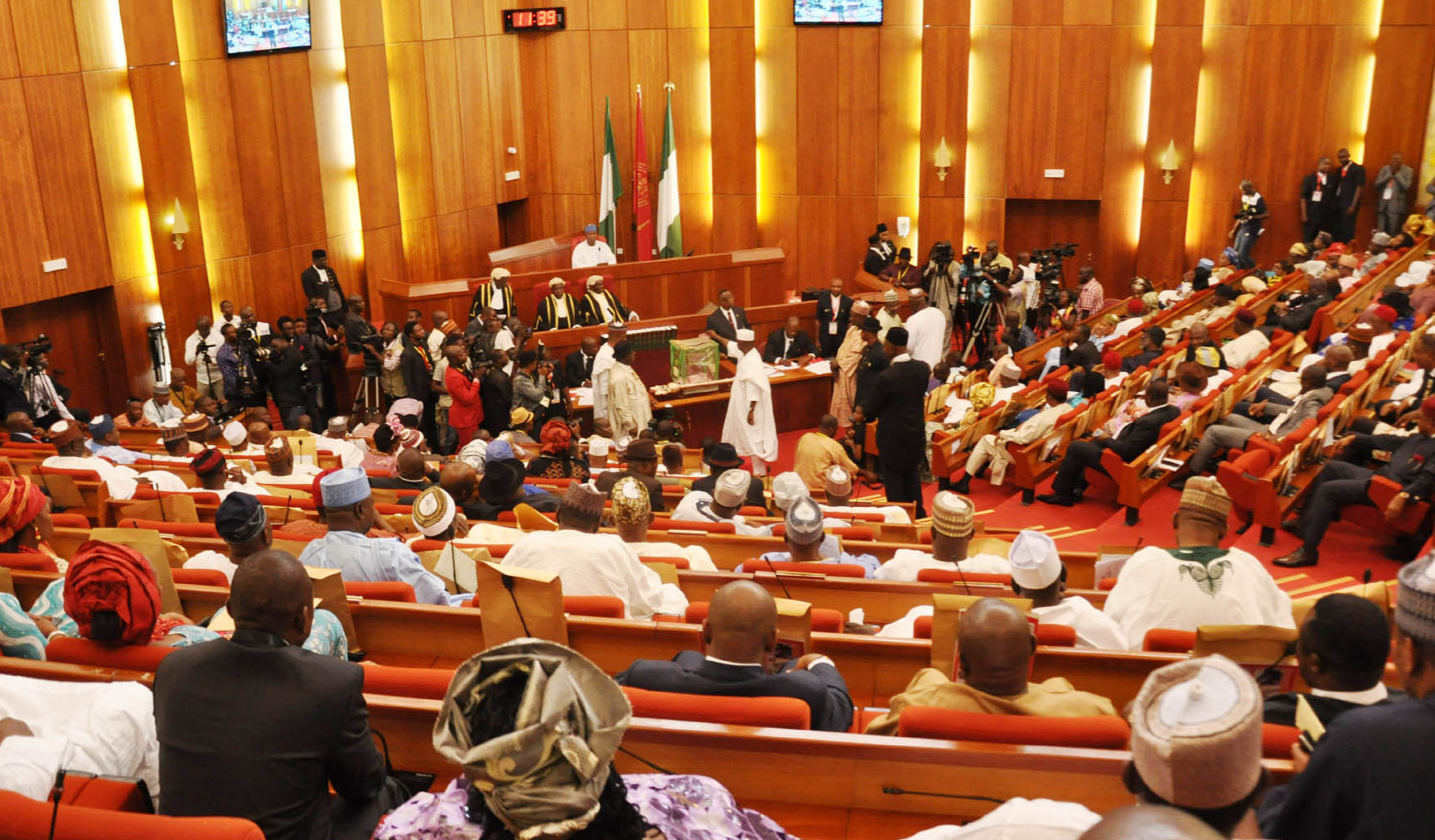
The Senate on Wednesday passed for second reading, a bill seeking the establishment of a National Internship and Unemployment Benefit Scheme.
The passage of the bill followed a lead debate by the sponsor, Afolabi Salisu (APC, Ogun Central) and contributions made by other Senators.
According to Salisu, the bill aims to offer unemployed graduates in Nigeria some part-time jobs where they can gain experience and earn stipends, preparatory for big offers.
The proposed law, he said intends to create a database of unemployed Nigerian youths, particularly graduates, with their respective disciplines and also establish a framework that will guide the provision of part-time jobs for youths while they search for full-time jobs.
READ ALSO: Court Affirms ICPC’s Power To Prosecute Delta Govt Officials
According to him, the scheme, when established, would provide hope for graduates and allow them to acquire experience before they secure full-time employment.
The lawmaker also noted that the scheme would help address insecurity and criminal activities, arising from unemployment.
He also acknowledged existing agencies such as the National Directorate of Employment and the Industrial Trust Fund, stressing however that they have not been targeted adequately at the beneficiaries.
He believes that the scheme, which will have a database, will be more effective in streamlining interventions to the beneficiaries.
READ ALSO: N2.7bn Fraud: EFCC Arraigns Ex-aviation Minister Daughter Thursday
Though many lawmakers who made contributions supported the proposed legislation, Ahmed Wadada ( SDP Nasarawa West), argued that the bill may not be the solution needed to tackle unemployment in the country.
He added that the focus should be on creating an enabling environment for the private sector to thrive and consequently create jobs and not thinking of benefits for the unemployed.
“If the environment is enabling enough to up to 10 Dangotes, the rate of unemployment will be reduced to the barest minimum. The emphasis at all times should be to create the needed enabling environment,” he said.
After passage for second reading, the President of the Senate, Godswill Akpabio, who presided over the plenary session, mandated the Senate Committee on Labour and Productivity to look at the issues raised and report back to the House in four weeks for further legislative action.
News
N2.7bn Fraud: EFCC Arraigns Ex-aviation Minister Daughter Thursday
Published
5 mins agoon
May 8, 2024By
Editor
The Economic and Financial Crimes Commission is set to arraign former Minister of Aviation, Hadi Sirika, his daughter, Fatimah, and two other suspects in court on Thursday.
The suspects are facing charges over alleged N2.7 billion contract fraud uncovered in the Aviation Ministry under Sirika.
The embattled former Minister would be arraigned for trial for the first time, before Justice Sylvanus Oriji of the Federal High Court in Abuja on Thursday.
Sirika is billed to appear in court with his three co-defendants, his daughter, Fatima; one Jalal Hamma, and Al-Duraq Investment Ltd, on charges of abusing their positions to launder over N2.7 billion.
Details later….
News
Court Affirms ICPC’s Power To Prosecute Delta Govt Officials
Published
8 mins agoon
May 8, 2024By
Editor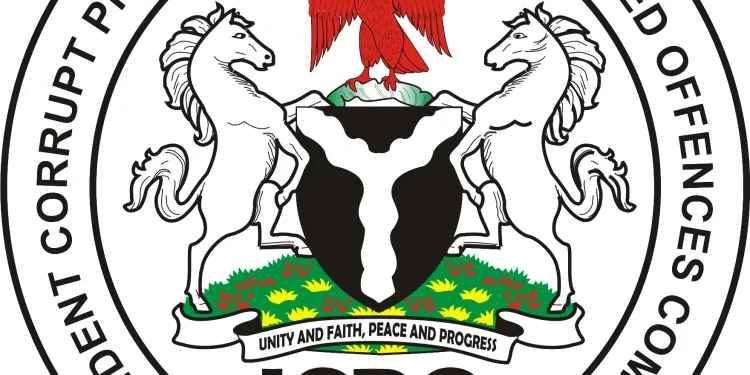
A Federal High Court sitting in Asaba, Delta State, has upheld the powers of the Independent Corrupt Practices and Other Related Offences Commission to investigate and prosecute officials of the Delta State Government who allegedly engage in corrupt acts.
The spokesperson for the anti-graft agency, Demola Bakare, made the development known in a statement on Wednesday.
The Attorney-General of the state had earlier filed a suit challenging the powers of the ICPC under Sections 6 and 28 of the Corrupt Practices and Other Related Offences Act 2000 (ICPC Act 2000) to investigate the state government’s finances and invite Delta State officials for interviews in the course of investigations.
READ ALSO: Abuja School Closed For One Week Over Death Of Four-year-old
The plaintiff in the suit, FHC/CS/165/2023, also contended that by Sections 120, 121, 122, 123, & 125 of the 1999 Constitution of the Federal Republic of Nigeria (as amended), it is only the Delta State House of Assembly and the Auditor General of Delta State that have the powers to look into the state’s finances and demand documents.
However, the ICPC argued that Sections 6 and 28 of the ICPC Act 2000 empower the commission to exercise its enforcement function on “any person,” including state government officials.
The commission, represented by the Director of the Legal Services Department, Henry Emore, stressed that the ICPC Act 2000 does not discriminate between the state government and the Federal Government in the fight against corruption.
READ ALSO: Air Peace, Seven Countries To Revive Bankrupt Caribbean Airline
“Furthermore, there is no conflict between the provisions of Sections 6 and 28 of the ICPC Act and Sections 120-125 of the Constitution; the two are rather, complementary,” he argued.
In his judgement on Wednesday, May 7, 2024, Justice F. Olubanjo of the Federal High Court, Asaba Division, agreed with the submissions of ICPC in its entirety and held that Nigeria practices cooperative federalism; and as such the fight against corruption is a function of both the states and the federal government.
He also noted that the issues before the court had been settled in a plethora of appellate decisions, among which is the Supreme Court judgment in AG Ondo State vs AG Federation & 36 ORS.
The suit was therefore dismissed with no cost awarded.
Bill On Unemployment Benefit Scales Second Reading

N2.7bn Fraud: EFCC Arraigns Ex-aviation Minister Daughter Thursday

Court Affirms ICPC’s Power To Prosecute Delta Govt Officials
Trending

 Headline4 days ago
Headline4 days agoPHOTOS: Moment 23-year-old Miss Ecuador Beauty Queen Is Gunned Down In Hail Of Bullets

 Metro2 days ago
Metro2 days agoKidnappers Sleep Off After Abducting Pastor’s Wife, Others In Ondo

 Headline2 days ago
Headline2 days agoICYMI: Pandemonium During Church Service As Man Pulls Gun, Attempts To Shoot Pastor [VIDEO]

 News3 days ago
News3 days agoJUST IN: SERAP Drags 36 Govs, Wike To Court Over N5.9tn, $4.6bn Loans

 Headline5 days ago
Headline5 days agoShock As Woman Who Visited Hospital For Scan Was Told She’s Dead

 Metro3 days ago
Metro3 days agoMan Dies On Top Of Married Woman In Akure

 Headline4 days ago
Headline4 days agoVIDEO: Arsenal Pay Tribute To 14-year-old British-Nigerian Fan Daniel Anjorin Killed In UK

 Headline4 days ago
Headline4 days agoFind The Man Who Stole $30000 From Me, Get $2000 Reward – Nigerian Man Cries Out

 Metro5 days ago
Metro5 days agoDelta Lady Dies After Friends Allegedly Pushed Her Into Pot Of Boiling Pepper [Photos]

 News4 days ago
News4 days agoWhy I Refused To Return Govt Vehicles – Ex-Edo Gov, Shaibu












